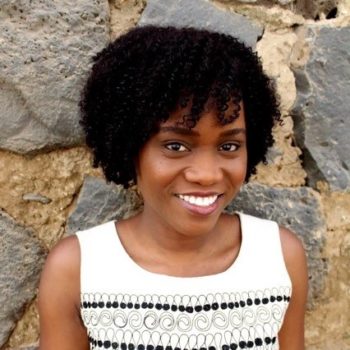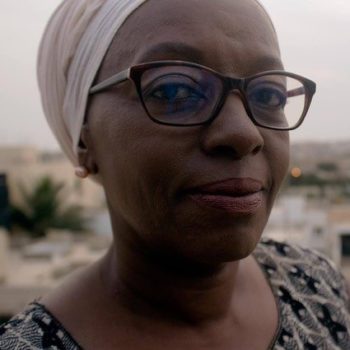African civil society organizations (CSOs) make significant contributions to the continent’s wellbeing. Each year, they raise millions of dollars from individuals and foundations to serve their communities, often testing and scaling innovations and sharing new insights to meet the challenges that face the continent. Additionally, they advocate for transparency and accountability in governments and serve as a chief means of citizen engagement.
African CSOs are on the front lines of development in Africa, yet little is known about them. ![]() There is limited data and mapping as to which groups exist and where, what they do, how they get funding, and the impact they make. In a 2018 study by EPIC-Africa, the organization we co-founded, we learned that the few CSO databases that do exist provide mostly basic, directory-like information, and much of it is outdated. The study also found several CSO assessment and accreditation efforts in Africa and abroad, but these initiatives are hard to scale as they require considerable amounts of human and financial capacity.
There is limited data and mapping as to which groups exist and where, what they do, how they get funding, and the impact they make. In a 2018 study by EPIC-Africa, the organization we co-founded, we learned that the few CSO databases that do exist provide mostly basic, directory-like information, and much of it is outdated. The study also found several CSO assessment and accreditation efforts in Africa and abroad, but these initiatives are hard to scale as they require considerable amounts of human and financial capacity.
This lack of data renders the sector’s contributions largely invisible. As a result, many Africans are unaware that some of the benefits they enjoy today are a direct result of CSO-led actions. The sector in turn often lacks the financial and moral support it needs from the public, as it does in many countries (this is especially challenging when the sector comes under attack). Invisibility and fragmentation prevent CSOs from connecting with each other, learning from one another, and leveraging the benefits of networks and collaborations, such as pooled resources and joint fundraising. ![]()
Because of this, individuals and institutions looking to identify African CSOs as possible partners and grantees are forced to “ask around,” a process that often favors a small subset of groups. Many worthy organizations remain off the radar of donors, and their insufficient funding leads to resource constraints that compromise organizational health and effectiveness.
This reality is less than ideal. What’s needed instead is the kind of infrastructure, more common in parts of the world where the philanthropic sector is well established, that would help to strengthen CSOs in Africa by gathering, analyzing, and sharing sector data. ![]() This infrastructure would consist of services and tools that aim to set standards and ensure continuous improvement in performance and impact, champion new approaches, and advocate for better policies to support the sector. Without this kind of robust and locally rooted infrastructure, CSOs (when they can afford it) must rely on global for-profit consulting firms whose frameworks are not always adapted to the realities and specificities of the not-for-profit sector in Africa.
This infrastructure would consist of services and tools that aim to set standards and ensure continuous improvement in performance and impact, champion new approaches, and advocate for better policies to support the sector. Without this kind of robust and locally rooted infrastructure, CSOs (when they can afford it) must rely on global for-profit consulting firms whose frameworks are not always adapted to the realities and specificities of the not-for-profit sector in Africa.
The role of African CSOs is increasingly (and thankfully) being recognized in national plans and global compacts such as the U.N. Sustainable Development Goals (SDGs). If CSOs are to effectively play their role, the local infrastructure that supports them must also be strengthened so that it can:
- Provide services and tools that allow CSOs and their funders to share knowledge, build capacity, and become more effective;
- Aggregate the sector’s contributions to serve as both an advocacy and a bargaining tool for CSOs as they seek better services from providers and push for more supportive policies from governments;
- Provide an independent voice, backed by data-based evidence, when CSOs are under attack; and
- Foster greater transparency and accountability in the sector, resulting in more visibility, credibility, local legitimacy, and support.
EPIC-Africa is among a growing number of African organizations seeking to strengthen this infrastructure and deepen philanthropic impact on the continent. One way we are doing this is through a platform we are building to support the growth of a vibrant philanthropic ecosystem with diverse, influential, sustainable African civil society groups at the center. Underlying the platform is an index of African CSOs designed to build CSO capacity and map and rank CSOs from the entire continent, across multiple sectors and indicators.
Our goal through these continental mapping efforts is to provide rich and actionable data that is grounded in breadth and rigor, embedded in the realities of CSOs, and responsive to their needs and preferences. We approach our work using technology with a human touch to ensure inclusivity and minimize inadvertently reinforcing existing disparities in the sector (e.g. rural/urban; community-based organizations/national NGOs). For example, during the data collection process, we have a live “support hub” that assists CSO onboarding and troubleshoots as needed.
In addition to collecting general CSO information such as location, area(s) of focus, and organization typology, our methodology gathers and assesses data along eight dimensions of organizational effectiveness, including:
- Strategic Ability and Adaptability
- Leadership and Governance
- Financial Health and Management
- Human Resources and Staff Development
- Operations
- Communications
- Partnerships and Alliances
- Monitoring and Evaluation
Our data collection approach uses a capacity-building framework to ensure that for CSOs, data sharing is not an extractive process, but rather a moment for strategic reflection and feedback.
Because creating and sustaining infrastructure is a long-term endeavor, this work to build strong civil society organizations — and with it a vibrant philanthropic ecosystem — is not for the faint of heart. ![]() It requires the same kind of dedication and drive for innovation that is required of effective programming. After all, strong organizational capacity and program impact are two sides of the same coin: a strong organizational structure is essential to achieving, sustaining, and scaling the change that our sector seeks through our programming. They are inextricably linked.
It requires the same kind of dedication and drive for innovation that is required of effective programming. After all, strong organizational capacity and program impact are two sides of the same coin: a strong organizational structure is essential to achieving, sustaining, and scaling the change that our sector seeks through our programming. They are inextricably linked.
As we embark on this journey, we are calling on like-minded institutions and individuals to join us in building the underpinnings of a thriving and resilient civil society sector in Africa.
Rose Maruru and Adwoa Agyeman are co-founders of EPIC-Africa. Follow the organization on Twitter at @EPIC_Africa_.





